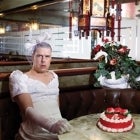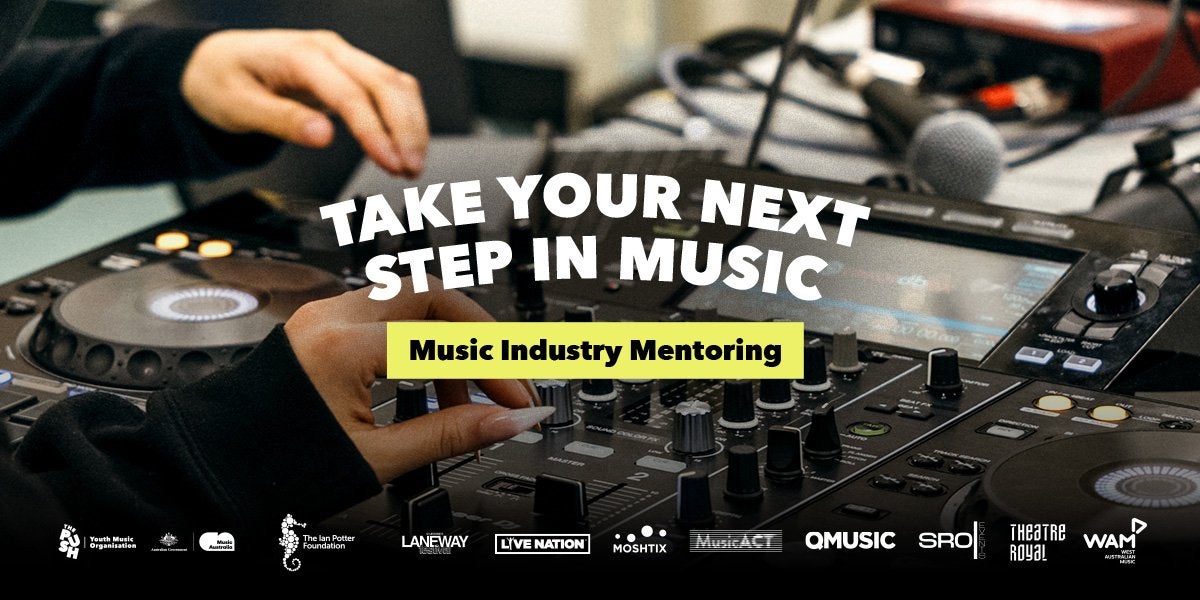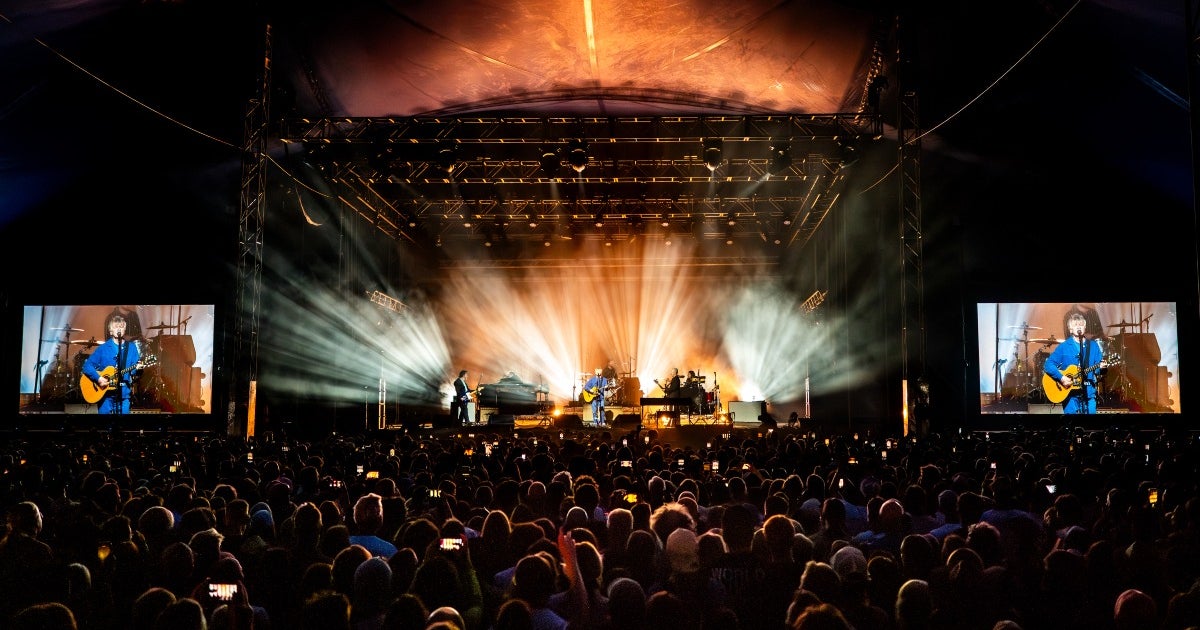Liars ignite the next phase of their 17-year metamorphosis with a homecoming tour - their first Australian shows in four years - and the first taste of their soundtrack for a forthcoming film by Jeremy Phillips. Tickets on sale now!
"UTTERLY bizarre and utterly brilliant" - The Arts Desk
"ANOTHER excellent album" - Loud and Quiet Magazine
"A TRIUMPH" - BrooklynVegan
SHORTLISTED for the Australian Music Prize 2017
Liars have provided the soundtrack for a forthcoming film by Jeremy Phillips, entitled 1/1. Hear/share the first taste, 'Liquorice':
Liars have, as a matter of course, sounded radically different with each album, pursuing new concepts and occupying diverse mindsets, from the pell-mell post-punk of their 2001 debut, They Threw Us All In A Trench And Stuck A Monument On Top, through the No Wave Hallowe'en stories of They Were Wrong, So We Drowned, to the haunted electronica of Mess. But there's no defining style to TFCF (out now via Inertia), no overriding concept, as it shifts between sampled elements, brash processed sounds and "real" instrumentation, passages of pointed abstraction and passages of wilful songcraft, avant gestures and genuine pop moments. There's no mask being hid behind, and the album is Liars' most honest and autobiographical yet.
Angus grew up in Australia, but at the age of seventeen he lit off on a vision-quest that took him all across the globe. It was while travelling that he began to discover his creative voice, but, he says, "I always had this strong urge to return to Australia, as I still regarded it my home."
So, two decades later, he returned down-under, intrigued to see how his new environs might affect his output. After all, Angus had never made music in Australia before. "I wondered if I'd even be able to create here,"he says.
Angus had been keenly aware of how his location had influenced previous Liars albums. His remote new abode brought with it fresh challenges. "Suddenly, the tides of the ocean became the most important thing to me, because I live right on the ocean now, and to get my boat out in the morning to get groceries on the mainland, I've got to know when the tide is coming in, or I'll get stuck. Very basic things like that suddenly became top priority in my life. And the effect was interesting. The last record, Mess, was made in LA, and had very tight corners and clean edges - it was sharp, programmed, organised. It sounds a lot like living in a city. But now, everything started to fall off-time."
It wasn't just Angus' surroundings that had changed, however - his whole creative process was about to undergo a drastic upheaval. Since arriving in Australia, as he worked on material for what would become TFCF, Angus had kept a line open with Aaron Hemphill, his Liars bandmate and only constant collaborator since the group had formed. "That line, fairly quickly and consistently, began to deteriorate," says Angus. "At one point I visited Aaron in Berlin, where he was living, and he told me he didn't want to finish the record."
Their friendship endures, but the breakdown of their creative relationship exacerbated the isolation Angus was experiencing out in the bush. "I was physically isolated, and now I'd lost this connection with my past, with my bandmate, with the rest of the world. Things began to feel really fragile." As he reworked the songs for the new album, he realised the lyrics he'd been sketching out - "Just off-the-cuff things about how I was feeling" - were about "this lack of connection, this breaking-down in communication. Classic break-up tropes were surfacing. I was narrating the process of a creative relationship deteriorating."
Angus describes TFCFas "a super-sad record", but this mood is offset by the restless creativity on display throughout the album. Cut off from the rest of the world in his remote home studio, with no other distractions, Angus gave free reign to artistic impulses he'd never explored. "I wanted to do lots of sampling," he says. "I'd done a little in the past, but I'd started to realise the possibilities of the process, of sampling myself playing 'proper' instruments, and then using the sampler to put it all together in an 'artificial' way."
In tandem with his embrace of the sampler, Angus also incorporated "authentic" sounds previously considered verboten within Liars; in particular, acoustic guitar. "That's always been a frightening prospect to me," he laughs. "'Real music', in the worst sense of that term."But there is acoustic guitar all over the new album, albeit often sampled and repurposed. "It gave me an opportunity to create a sound that was warmer and more sensitive. Which was important, considering the subject matter of the lyrics."
As he recorded the tracks for the new album, Angus kept a microphone running that he'd set up just outside of his studio, pointed out into the bush. "A lot of the sounds I was working on were samples, they lived inside my computer, but I still wanted to have a connection with everything around me," he says. "So everything I was recording was in context of the world outside the studio... Sometimes I'd have my headphones on, just listening to the bush, and a bird would fly up and scream into the microphone. The truth is, even in New York or LA, I was still pretty isolated. Here, there are no other people around, but I feel much more connected to the environment around me than in a big city."
The album's reinvention of the Liars paradigm - blurring the lines between electronic and acoustic, between the experimental impulse and the addictive pop sensibility - is evidence that Angus' creative energies remain as healthy as ever, even given the upheaval within the group. Even in his darkest moments, he never considered not finishing the album, still engaged by the challenge of making new art, the satisfaction of exploring new frontiers.
"I feel like, 'I haven't tried this, maybe I could try it because I haven't done it'," he says. "The innocence of experimenting with something that you don't know how to use. And that's what's driven the music from one extreme to another, the possibilities of the unknown, putting myself in a position that's uncomfortable. 'I don't know how to write a record with strings and acoustic guitars, what would happen if I tried?' Using equipment the way it wasn't supposed to be used, because I don't know how to use it - it gives me a chance to find a way of using it in a unique way."
TFCF, then, is another unexpected chapter in the saga of Liars, and one that confirms, for Angus, that there will be more to follow. "Suddenly you wake up, fifteen years down the track, and realise, 'Liars is actually my life'," he grins. "You start off thinking you're only messing around, and suddenly you're eight records into it. And it feels empowering. It's all a learning curve, experimenting with new ways of expressing myself. And that's really exciting to me."





.jpg)